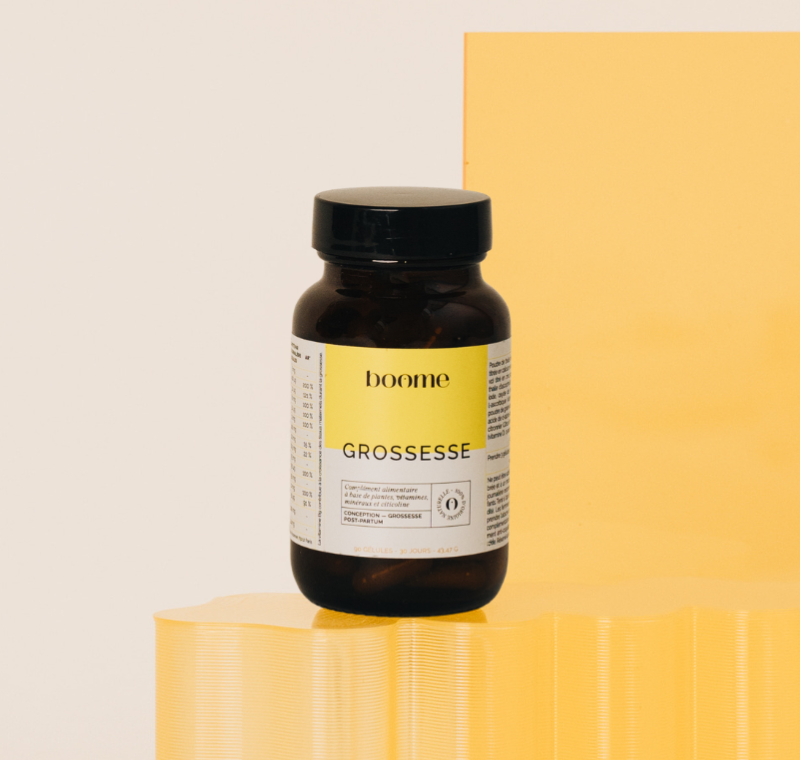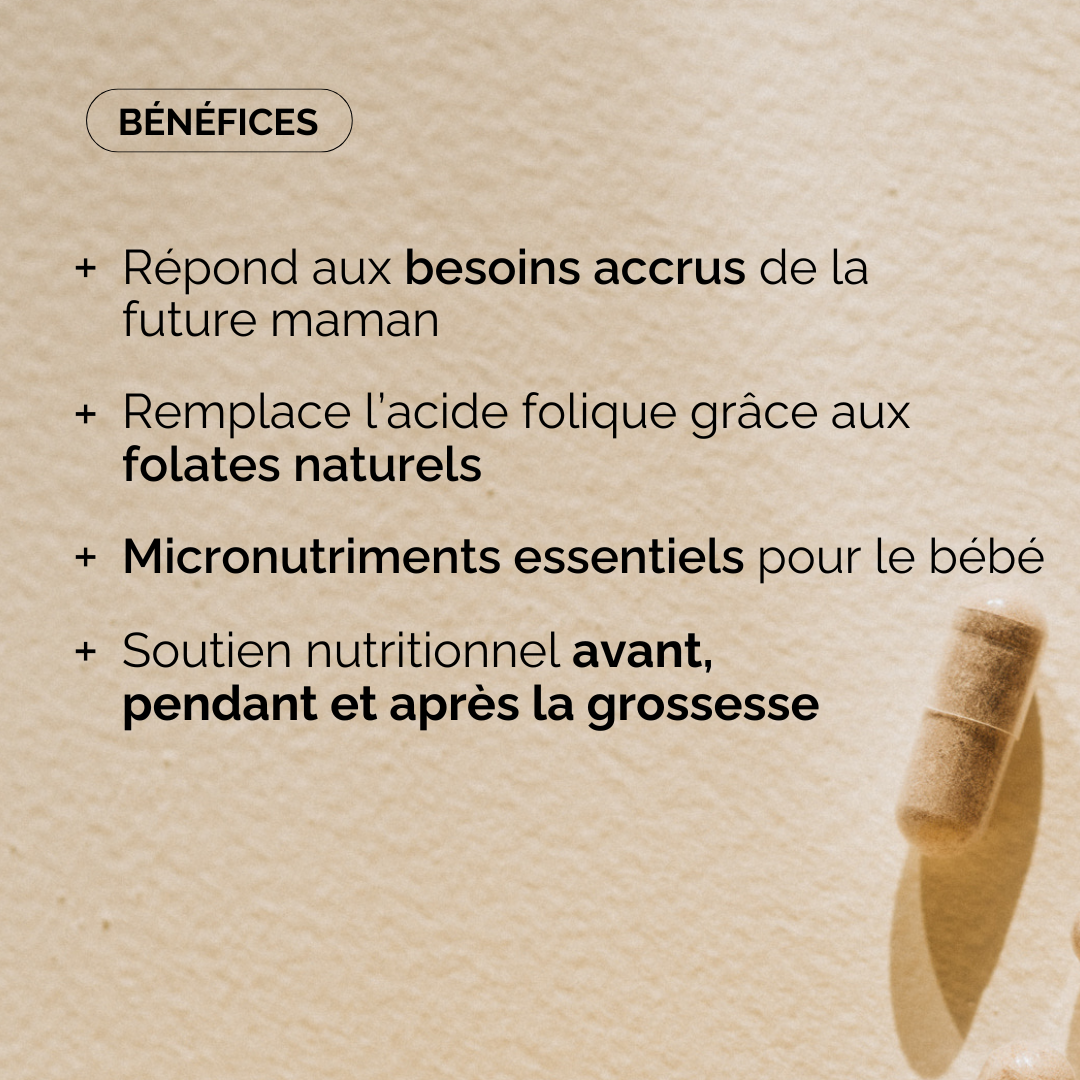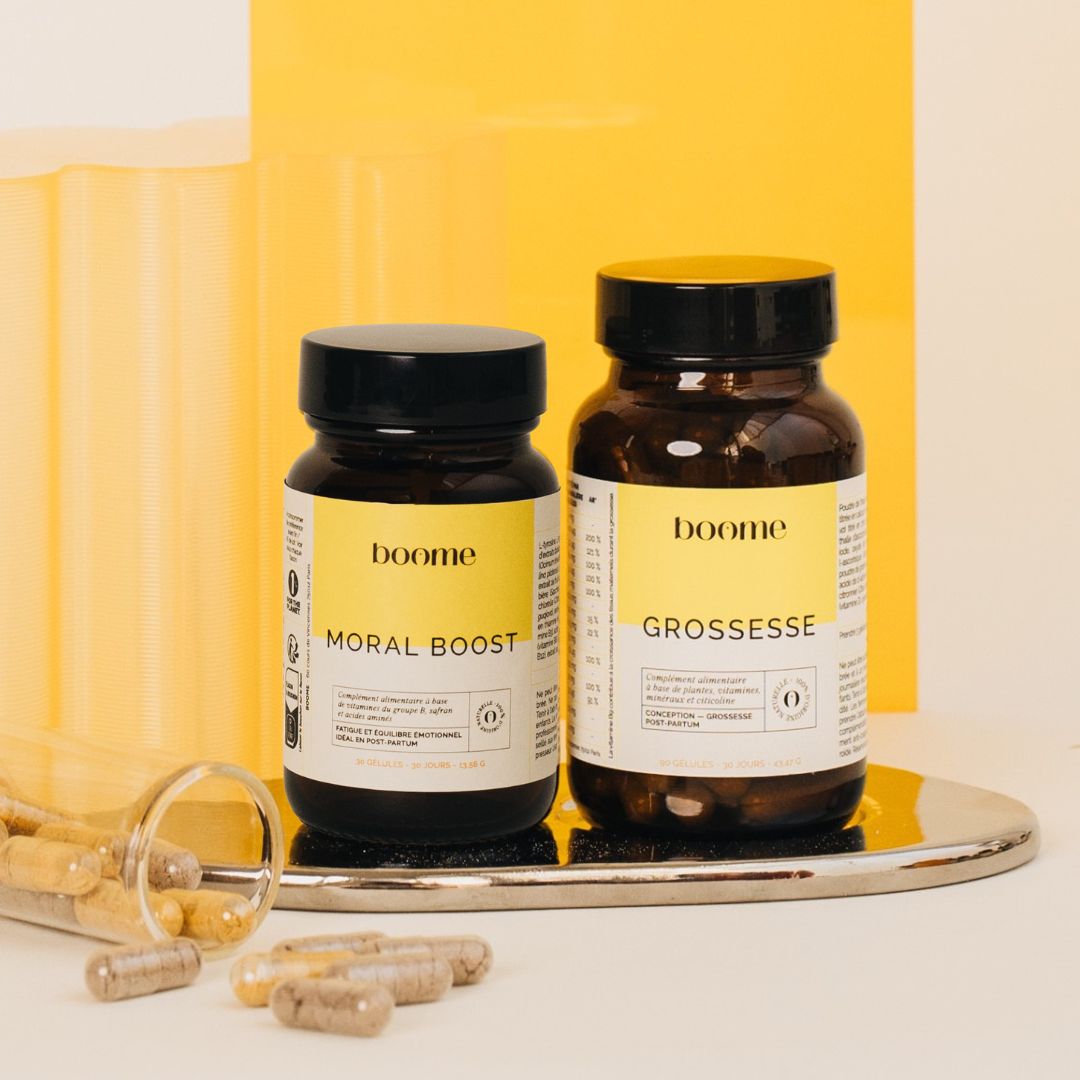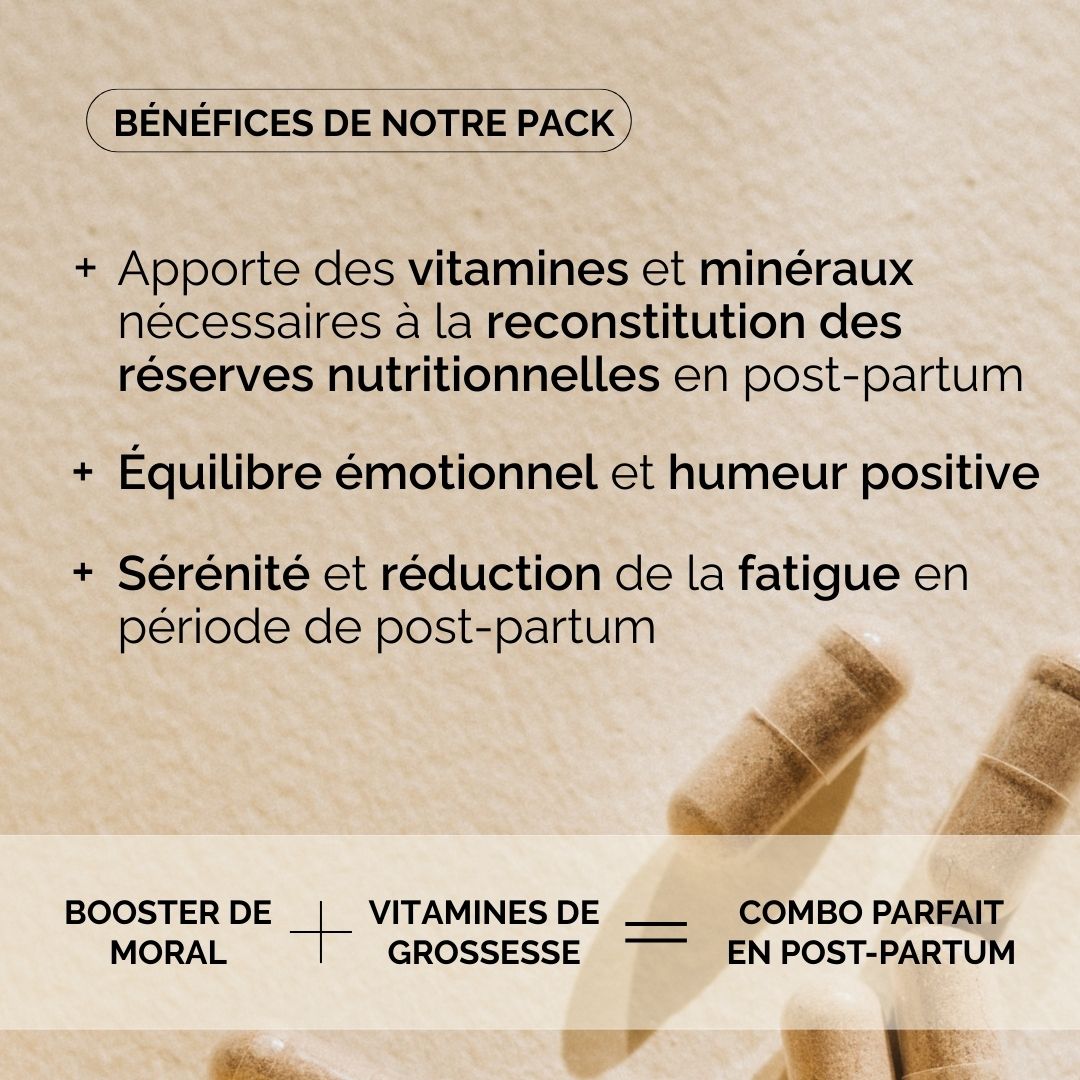
When you're pregnant, you often see childbirth as the finish line of your pregnancy. And then, suddenly, surprise: you're embarking on the postpartum adventure. Sometimes, this period can seem like heaven. You're rocked by hormones and the first moments with your baby. You resume your daily activities. And before you know it, the postpartum period is behind you. In short, exactly what you imagined. Great!
And sometimes, the postpartum period takes a different turn. We're not in great health. Milk production is difficult. Anxiety disorders can appear. In short, it's not exactly the rosy period we were hoping for. At the maternity ward, the midwife told us that the postpartum period would end after a few weeks. But we feel like it's dragging on forever. And it's hard.
Sound familiar? It's normal. Because one topic is a hot topic of debate: how long does the postpartum period last? We've tried to answer this complex question for you. Let's take a look at the different perspectives that characterize this period, its symptoms, and our advice for getting through it as best as possible.
How long does postpartum last?
Postpartum period: what medicine says
Let's take things in order. First, what does medicine say? According to the World Health Organization , the postpartum period is nothing more or less than the period that follows childbirth. Generally, it lasts 6 to 8 weeks, or about 45 days. Why? Because this is the time the uterus needs to regain its shape and position. This period therefore begins as soon as the placenta is expelled and ends on the first day of the return of menstruation.
But already, within the medical profession, some professionals are adding their own nuances, as explained by the magazine Harmonie Santé. We read that gynecologists Mattea Romano and Alessandra Cacciatore define the postnatal period in three distinct phases:
- the acute phase (6 to 12 hours after delivery);
- the subacute phase (2 to 6 weeks);
- the delayed postpartum period (up to six months after birth).
You see where we're going with this: postpartum is much more complex than what you'll find in the Larousse dictionary.
Postpartum period: what women say
Because yes, there is the postpartum period as seen by medicine... And ours. The one we experience, which belongs to us, which reflects our history. An experience that is both universal and so singular. The one that turns everything upside down in its path: the body, the couple, the family, the work. Without consensus.
So, how long does it last? The real answer is that there isn't really one. It can last for several months... or even three years, as midwife Anna Roy says. Does that seem like a long time? It's normal. But remember that giving birth generates a multitude of physical and physiological cataclysms, which can sometimes last (we'll talk about that right after).
So this is why there's such a huge gap between medical perspectives and the experiences of new mothers. Because we tend to focus on the immediate symptoms following the birth of the baby. Yes, your uterus returns to its original size after a few weeks. But no, you don't suddenly become "the way you were before." It's much more complex than that. Many women, in fact, refer to their postpartum period as a "fourth trimester."
Anna Roy and other feminists, such as Illana Weizman, are therefore campaigning for us to consider the postpartum period for expectant mothers over a long period of time. This is to combat the resulting pressures for immediate happiness.
Postpartum symptoms
As you can see, many factors can influence the duration of the postpartum period, including physical and psychological symptoms. Here are a few (non-exhaustive list).
Postnatal period: physical changes
Immediately after giving birth, we regularly observe the same symptoms that characterize the postpartum period from a strictly medical point of view. The two most common discomforts remain:
- The contractions: uterine contractions felt after giving birth. These are the muscles working to regain their original shape.
- Lochia: Bleeding (like a heavy period) that begins after the placenta is expelled. It remains very heavy for the first few days, then decreases over the weeks, eventually disappearing completely.
- Milk production: Breasts are swelling, and breastfeeding is in the making! But it can feel tight and a little painful.
- Stretch marks: these will fade over time.
It also happens that your vagina may burn a little if you've had some injuries or an episiotomy. Don't panic, it will get better quickly.
Your belly will remain rounded for a while. It carried your baby for nine months; it can't become completely flat again in a split second! And that's normal. So, don't feel guilty, and above all... Don't start exercising or dieting to lose weight. Don't resume physical activity without the approval of your doctor or midwife. Save your pelvic floor!
Psychological changes
As you can see, the body changes. But so does the brain. And the psychological upheavals associated with postpartum often manifest themselves through two very different states, both of which are still not discussed enough.
Baby blues
First, there's the baby blues. You've probably already heard of this. What is it exactly? Well, it's a cocktail of emotions linked to all these physical, psychological, and hormonal changes. Which, in turn, is due to childbirth. Quite a story! This condition lasts about 15 days and affects the majority of women. It occurs a few days after birth, and the new mother may then:
- to feel like crying “over nothing”;
- feel tired;
- be very irritable or prone to mood swings;
- lose one's bearings...
- ...or confidence in her.
Granted, the baby blues can quickly become overwhelming. But it's not serious. Add to that the fact that it usually goes away on its own. However, if it lasts more than two weeks, talk to your doctor or midwife. It could be postpartum depression.
Postpartum depression
Not to be confused with the baby blues, then. And yet, such a common mistake! According to The First 1000 Days , nearly one in five mothers suffers from postnatal depression. It often sets in between the baby's first and second month. So, when should you seek help? Basically, when the baby blues persist and become noticeable. The symptoms remain essentially the same:
- anxiety ;
- confusion ;
- headaches;
- insomnia ;
- irritability.
The problem is that it's difficult to diagnose. Why? Because women tend to keep it quiet. They feel guilty about this state of unhappiness, feel remorse, and therefore prefer not to talk about it to their loved ones or a healthcare professional.
However, the impact of postpartum depression on their well-being and that of their child can be devastating. So, our advice: talk to someone you trust. Don't be ashamed. You are not alone!
Let's also add that this illness doesn't only affect women. It's still a fairly taboo subject, but paternal postpartum depression also exists. It affects nearly one in ten fathers, and deserves to be addressed just as much.
Living well during the postpartum period
In France, many initiatives offer support for new mothers during the postpartum period. Yet, few women are aware of this and navigate all these challenges alone. Remember that several free programs can help you during this time, even before the famous six-week checkup.
The Prado device
Once you go home, you're entitled to two or three midwife visits within the first twelve days of your child's life. This is the Prado program for returning home, and it's free. It's offered primarily to mothers who are leaving the maternity ward early (24-72 hours postnatal if vaginal delivery, and 96 hours if cesarean). So, take advantage of it.
CAF
Family allowance funds (CAF) and some associations also fund hours of home help. These programs are implemented in the event of a change in circumstances. This includes, of course, the birth of a child. This can really help you overcome occasional difficulties.
Mother-child units
Some hospitals have a mother-baby unit to help those who have difficulty bonding with their baby, or who suffer from postpartum depression.
The 6-week consultation
Of course, the postnatal consultation with your gynecologist, or with the midwife at the maternity ward. It takes place between 6 and 8 weeks after the baby's arrival. This is where you'll take stock of your health. The professional will, for example, check your scars (if you have an episiotomy, a tear, or a cesarean delivery). But you'll also be able to confide in them about your psychological state! So, talk about everything: your joys, your anxieties. About the (sometimes complicated) experience of birth. About your hesitations between breast milk and formula. About your desire, or not, to resume sexual activity. In short: about all your difficulties.
Muscle rehabilitation
Don't neglect your perineal and abdominal rehabilitation sessions (we tend to forget this one)! These are the sessions that will allow you to:
- get super abdominal muscles;
- promote a well-toned pelvic floor;
- significantly limit the problems that we don't want to have in our lives (like, at random, urinary incontinence).
After a few sessions with a physiotherapist who will teach you how to properly contract your perineum, you can equip yourself with a perineal probe to continue your rehabilitation at home . The probe is connected via Bluetooth to your smartphone, which allows you to perform the exercises in the form of mini-games, at home, at your own pace.
They'll also help you get back into physical activity quickly. All good, in short!
The Post-Partum product range at Boome
At Boome, we've noticed how much the new mother takes a back seat as soon as her child is born. But we haven't forgotten you! And we wanted to support you as best we could during this very special time. That's why we created Post-Partum , a Moral Boost food supplement made from plants, vitamins, and amino acids. All of this, 100% natural and additive-free, of course. A complete range of products specially designed to help you get through the few months following your delivery with complete peace of mind.
Our vitamins will be your best allies for:
- boost your morale;
- reduce your fatigue;
- improve your resistance to stress;
- strengthen your body.
In short, they will provide you with physical and emotional support, essential to counter the hormonal drop caused by the post-natal period.
So, what can we learn from all this? Well, that the postpartum period represents a time in life as unique as it is complex. That it defies simplistic definition. That each experience remains entirely personal, with its joys and challenges. And above all, that it extends well beyond established medical boundaries. It is by recognizing this diversity and offering women appropriate support that we can accompany them as they deserve in this extraordinary adventure.
Stay connected with us for more tips, tricks, and news about motherhood! Follow our adventure on Instagram and join our community of (expectant) mothers.










